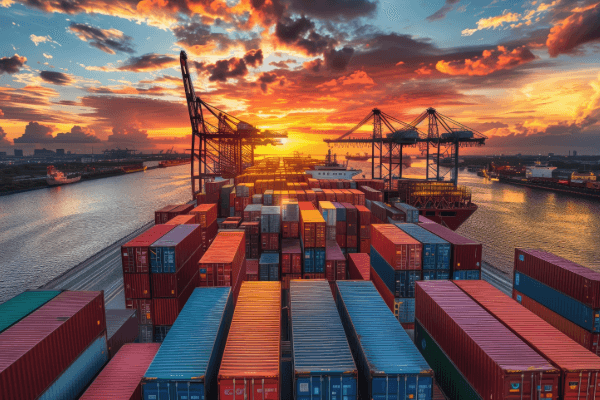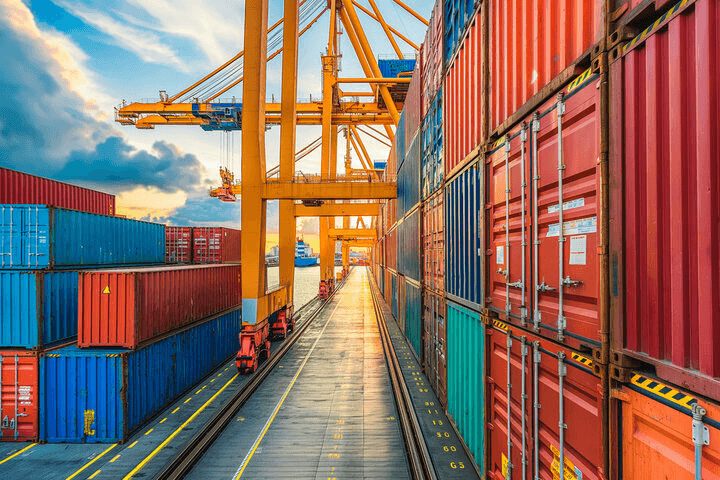In recent years, tariffs have become a major factor affecting industries across the United States, and the flooring industry is no exception. As the U.S. imposes higher tariffs on imported goods, businesses and consumers alike are feeling the strain of higher costs. The flooring industry, which relies on Chinese imports, European materials, and North American trade partners, is particularly vulnerable to these changes.
The impact of tariffs on flooring comes in several key areas: rising raw material costs, supply chain disruptions, and increased prices for consumers. These factors contribute to higher costs in construction and remodeling projects, affecting homeowners, builders, and retailers. Below we will explore the latest tariff policies, their direct impact on the flooring industry, and how flooring companies like VANTIA Hardwoods are navigating these challenges.
Overview of Recent Tariff Policies
Tariffs have long been used as a tool to regulate trade, but recent policies have introduced new challenges for the flooring industry. The latest tariffs, particularly those targeting Chinese imports and goods from North American trade partners, are expected to drive up costs and create supply chain uncertainties.
Tariffs on Chinese Imports
As of February 4, 2025, the United States has imposed a 10 percent tariff on a range of Chinese goods, including flooring materials such as hardwood, luxury vinyl, and other essential construction materials. In response, China has introduced retaliatory tariffs, further complicating trade between the two nations. Since a significant portion of flooring products and raw materials originate from China, this new tariff structure is expected to lead to price increases throughout the industry.
Tariffs on Canadian and Mexican Goods
The proposed 25 percent tariff on imports from Canada and Mexico adds another layer of cost concerns, particularly for hardwood flooring manufacturers that rely on softwood lumber from Canada. Softwood lumber is a critical material in the flooring supply chain, and increased costs on these imports may lead to higher prices for both consumers and businesses.
With these tariff changes in place, flooring companies must reassess their sourcing strategies and pricing structures to remain competitive. These policies will directly affect manufacturers, retailers, and consumers.

Direct Impacts on the Flooring Industry
The newly implemented and proposed tariffs are reshaping the flooring industry by increasing costs, disrupting supply chains, and forcing businesses to adapt. With key materials facing higher tariffs, companies must navigate these challenges while still meeting consumer demand.
Increased Costs of Raw Materials
One of the most immediate effects of these tariffs is the rising cost of raw materials. The 25 percent tariff on softwood lumber from Canada is especially concerning for flooring manufacturers, as this material is essential for hardwood flooring production. Softwood lumber is widely used in engineered hardwood flooring and structural components. With the added costs, manufacturers are forced to either absorb the financial impact or pass it along to customers in the form of price increases.
Similarly, the 10 percent tariff on Chinese imports affects luxury vinyl and other popular flooring products. Since China has historically been a major supplier of vinyl and engineered hardwood flooring, this tariff leads to higher prices for both retailers and consumers. The result is an industry-wide price shift that impacts everyone, from distributors to consumers.
Supply Chain Disruptions
In addition to higher costs, tariffs also create instability in the supply chain. Many flooring manufacturers and distributors rely on imported goods from China, Canada, and Mexico to meet demand. With new tariffs in place and the ones being proposed, businesses may face delays in obtaining materials, increased transportation expenses, and logistical challenges in sourcing alternatives.
These disruptions could have a negative impact on inventory availability, leading to longer wait times for flooring products and project delays in the construction industry. Builders, contractors, and retailers may find it more difficult to maintain consistent stock levels, making it essential for companies to explore new sourcing strategies.
As the industry continues to change, the full extent of these challenges will become clearer. However, one thing is certain—rising costs and supply chain issues will inevitably affect consumers.

Effects on American Consumers and the Housing Market
As tariffs drive up costs for raw materials and disrupt supply chains, the financial burden ultimately falls on American consumers and businesses. Homeowners, builders, and contractors are all experiencing the ripple effects of these new trade policies, particularly through increased housing and flooring costs.
Rising Housing Costs
With tariffs impacting key construction materials, such as softwood lumber and flooring products, housing costs are expected to rise. Home construction and renovation projects are already facing higher price tags due to supply chain constraints and inflation, and tariffs add another layer of financial strain. The higher cost of materials directly affects builders, who must either raise home prices or absorb the additional expenses, reducing their profit margins.
For homebuyers, this means purchasing a new home may become even more expensive, especially at a time when affordability is already a growing concern. Increased construction costs could also lead to a slowdown in new home developments, further limiting housing inventory and pushing prices even higher.
Price Increases for Flooring Products
Tariffs on imported goods, particularly flooring materials from China and Mexico, have led to noticeable price increases for hardwood, engineered wood, and luxury vinyl. Since a significant portion of the U.S. flooring market relies on Chinese imports, these new tariffs are causing a shift in pricing strategies among manufacturers and retailers.
Retailers and suppliers who depend on foreign goods now face higher tariffs, making it more costly to import their products. In turn, consumers see higher prices when shopping for new flooring, whether for a renovation or new construction. For those looking to update their homes, the cost of materials alone could make projects unaffordable, delaying upgrades or leading them to seek alternative, lower-quality products.
With these challenges in mind, homeowners and industry professionals must explore solutions that balance quality and cost.
Navigating the Challenges: The VANTIA Hardwoods Advantage
With tariffs creating uncertainty in the flooring industry, businesses and consumers must find ways to adjust. VANTIA Hardwoods is committed to providing high-quality flooring solutions that mitigate the impact of rising costs and supply chain disruptions. By focusing on sustainable sourcing, reliable inventory, and comprehensive service offerings, VANTIA ensures that customers continue to receive premium products without the unpredictability of tariff-driven price fluctuations.
Commitment to Quality and Sustainability
VANTIA Hardwoods remains dedicated to offering premium, eco-friendly hardwood flooring and interior finishes. As rising tariffs affect imported materials, VANTIA continues to prioritize quality, ensuring that customers receive durable and stylish flooring that stands the test of time. Our commitment to sustainability ensures that consumers can choose flooring that is not only stunning but also environmentally sustainable.
Domestic and European Sourcing for Stability and Quality
To minimize the impact of tariffs on Chinese imports and other foreign goods, VANTIA strategically sources hardwood materials from both the United States and Europe. By working with trusted domestic and European manufacturers, VANTIA ensures a stable supply chain, consistent product quality, and competitive pricing despite ongoing tariff fluctuations. This diversified sourcing strategy helps maintain reliable inventory levels and gives customers access to high-quality flooring options without unexpected cost spikes.
Comprehensive Services to Support Consumers
Beyond offering premium flooring materials, VANTIA provides full-service solutions, including professional installation and ongoing maintenance. Customers can rely on VANTIA’s expertise to guide them through product selection, ensuring that they choose flooring solutions that fit their needs and budget. By focusing on high-quality domestic and European-sourced hardwood, VANTIA helps consumers avoid the unpredictability of price increases associated with new tariffs.
VANTIA’s In Stock Collections
Understanding that tariffs and supply chain disruptions can lead to delays, VANTIA maintains several hardwood flooring collections in stock for immediate delivery. These collections, including the Classic Collection, the Peak Collection, and the Tierra Collection, provide customers with premium flooring options without the long wait times associated with overseas imports.
As the flooring industry navigates the challenges brought by tariffs, VANTIA Hardwoods remains committed to providing reliable, high-quality solutions that support homeowners, builders, and contractors. By focusing on sustainability, diverse sourcing, and comprehensive service offerings, VANTIA helps customers make informed decisions while maintaining access to exceptional flooring products.
Interested in learning more about our premium hardwood flooring? Contact us today to get started.
